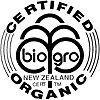Organic farming is indispensable to halt the loss of biodiversity on farm land
IFOAM EU comments European launch of 2010 International Year of Biodiversity in Madrid
Madrid, 27/01/2010 – The Spanish Presidency launched the Year of Biodiversity on EU level at its conference “Post-2010 Biodiversity Vision and Target” (1) and discussed future EU strategies in Madrid. As the 2010 target to halt the loss of biodiversity has been clearly missed (2), the IFOAM EU Group urges the EU to take serious action before 2020 and integrate biodiversity protection into all major EU policies.
“Organic farming with its various assets for biodiversity enhancement is an indispensable tool in the necessary policy mix for biodiversity protection”, comments Marco Schlüter, Director of the IFOAM EU Group (3), at the conference in Madrid. “Diversity of species and ecosystems is a value in itself, but it is also an essential resource for food security for future generations. The loss of biodiversity also leads to heavy economic and human welfare losses – ecosystem services like soil fertility, nutrient cycles and carbon sequestration are decreasing. The situation is dramatic. The EU must now come to serious commitments.”
“Biodiversity is more than a matter of protected areas. Biodiversity also needs attention in the core zones of agricultural production”, adds Victor Gonzalez, Director of the Sociedad Española de Agricultura Ecológica (SEAE) and Spanish member of the IFOAM EU board. ”Organic farming should be a central element in the future CAP structure, as it combines biodiversity protection with an income opportunity. It contributes to both: diversity of wild species on farm land as well as of breeds and varieties used in farming. Thus it also enriches the diversity of our daily food plate.”
“Diversity of soil organisms is crucial to preserve soil functions such as fertility, carbon sequestration, nutrient cycles and eventually food production. A diversity of wild species is necessary for managing pests sustainably, and only a wide range of agricultural varieties and breeds in use guarantees that we have a reserve of adapted varieties to fall back on in case of climate change and other environmental changes. The European Union must reflect this in its legislation”, explains Antje Kölling, Policy Coordinator of the IFOAM EU Group.
End (characters 2342)
More information:
IFOAM EU Group, Tel: + 32-2-280 12 23, Fax: +32-2-735 73 81, [email protected], www.ifoam-eu.org
NOTES:
(1) European Conference “Post-2010 Biodiversity Vision and Target”:
http://www.fundacion-biodiversidad.es/europeanconference2010
(2) Commission Communication “Options for an EU vision and target for biodiversity beyond 2010”, 19 January 2010: http://ec.europa.eu/environment/nature/biodiversity/policy/pdf/communication_2010_0004.pdf?
(3) The IFOAM EU Grouprepresents more than 300 member organisations of IFOAM (International Federation of Organic Agriculture Movements) in the EU-27, the EU accession countries and EFTA. Member organisations include: consumer, farmer and processor associations; research, education and advisory organisations; certification bodies and commercial organic companies.
















